If you feel it, do it! That’s the mantra that increasingly runs through my thought processes these days.
More often than not, especially in the mountains, where it can be all too easy to find a reason not to do something, listening to your intuition can get you places and give you moments that will be there, bright and clear in the memory, forever.
The weather forecast was record-breakingly good. I’d planned a night out in a Lake District cave, but I wasn’t feeling it. There’s a time and place for living in a hole, and this wasn’t it. With a clear sky forecast all night and only the lightest of breezes, there was only one thing for it – a summit bivvy.
Time was short, so I decided on that most obliging of Lakeland peaks, Red Screes, conveniently located above the Kirkstone Pass. It’s a short climb, 30–40 minutes and you’re on top.
For overnighting, this is a great peak. There’s space, grassy level areas and water – a small tarn’s worth. The trig point sits right next to a plunging face. There’s no ambiguity, you’re on a mountain alright.
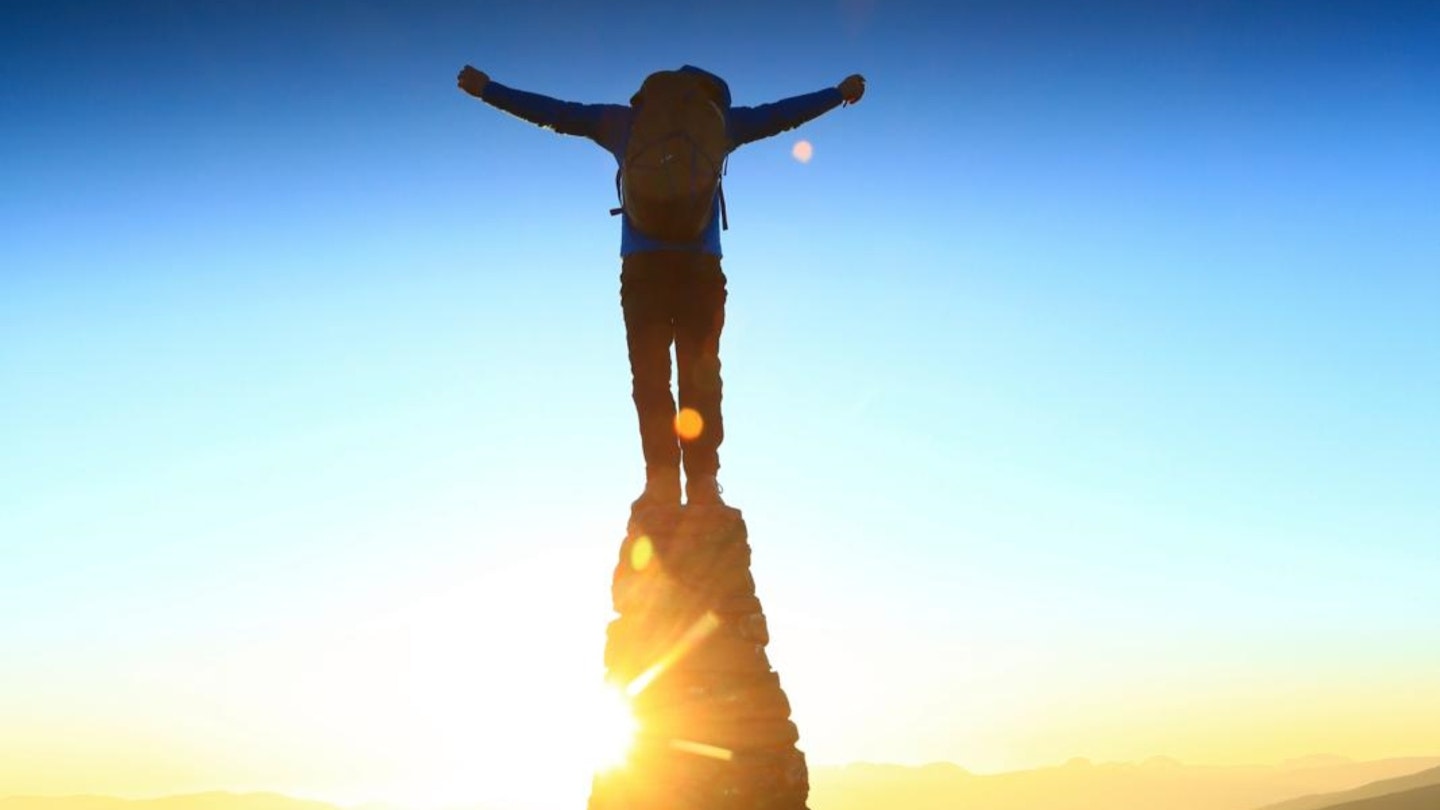
This willingness to give so freely for so little cost means that Red Screes hosts a near-constant group of pilgrims. In the 30 minutes before sunset, I bumped into a young lad called Jack who’d bet his mate £100 that he could climb to the summit in 20 minutes. Sadly, he didn’t – 26 expensive sweeps of the second hand taught him a valuable lesson.
There was another chap who’d been for a day’s hike and was drooling over the beer waiting at the bottom of the mountain, and a runner in his 50s from Ambleside kitted out in so much Lycra I didn’t know where to look.
Then two guys who’d left work in Bowness at 5.30pm, driven up to the Pass, legged it to the summit for sunset, and were heading down in darkness. Hat’s off to them all. As for me, once I was at the summit, that’s where I was going to stay.
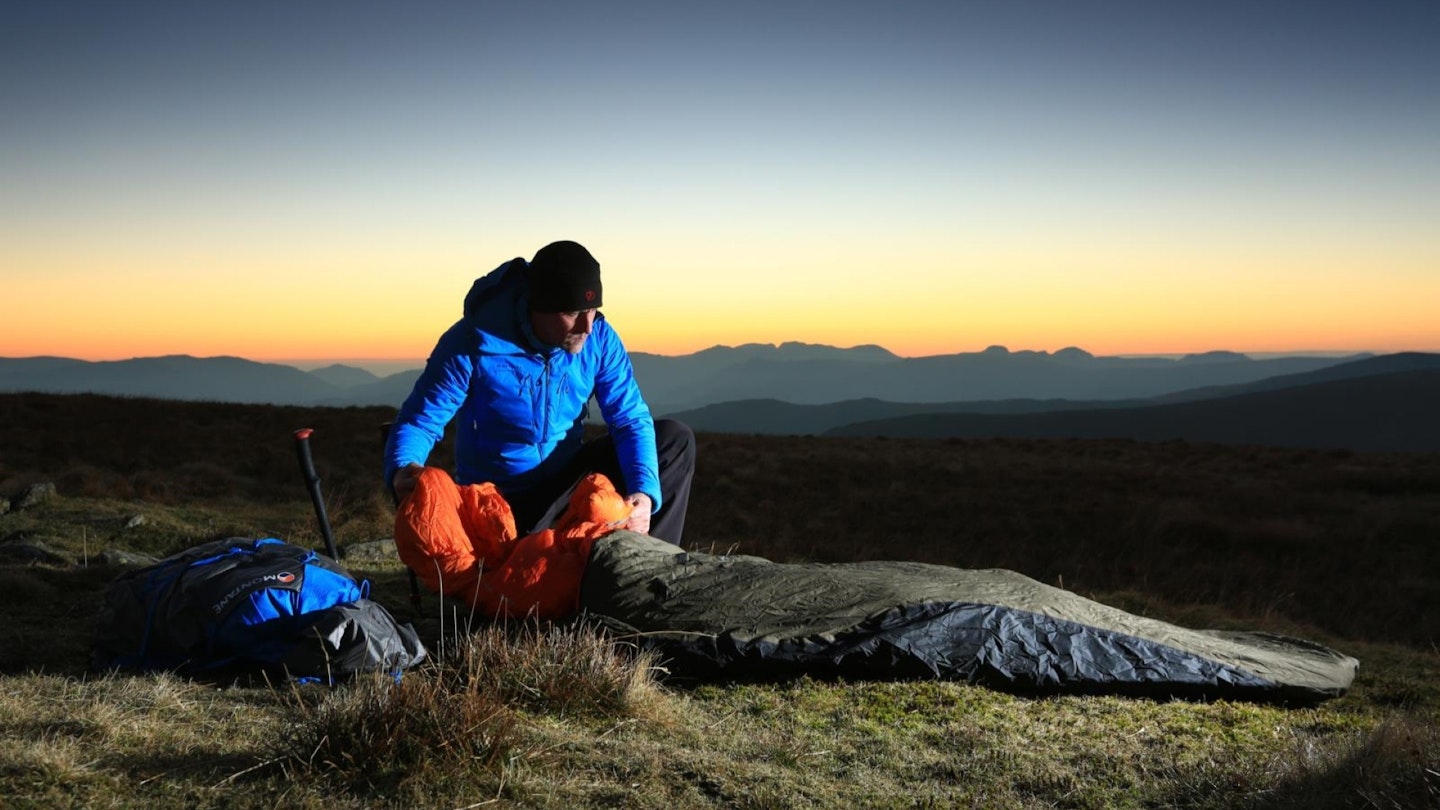
In a sense, bivvying is anticlimactic. There’s no impressive erection to put up, more like a laying out of a rather flacid, empty bag. And if you feel the need – and I did because there was just a little in the way of a breeze – the jamming of two walking poles into peg loops at the head end of the bag to stop it blowing away.
So, all in all, it took around 3 minutes and 27 seconds to prepare my bed for the night. If you’re new to bivvying, note that all you have for the night is a bed. There’s no roof. So be prepared for an intimate encounter with the night.
Of course, this is the whole reason for being there. Perfection in the weather is what you’re after. The locals I’d met earlier knew it was a special evening and had made the monumental effort to seize the moment. For once, I was able to do the same.
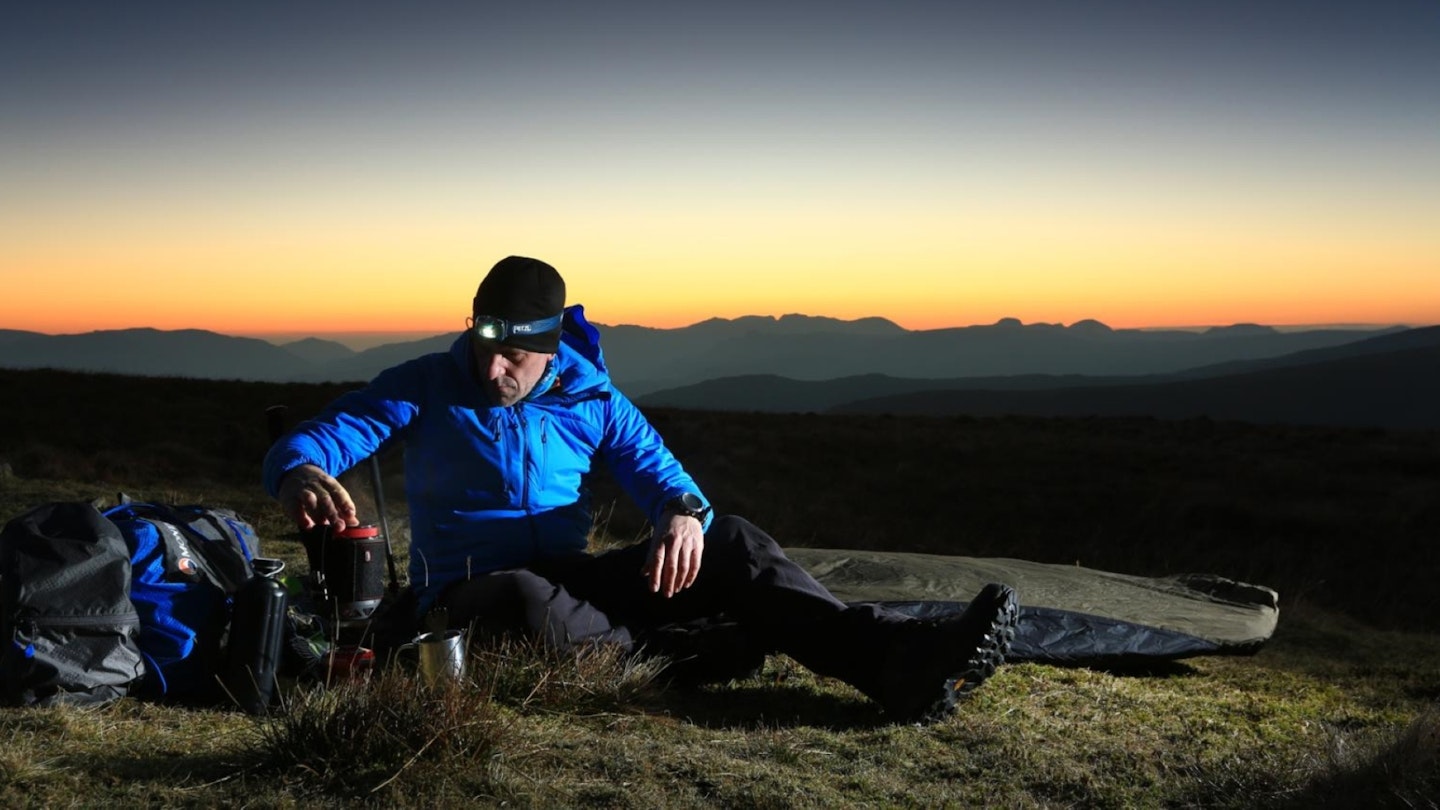
Sunsets have never really floated my boat; it’s the period after the sun has set that intrigues me. Once the brash orb has gone, all of the subtleties in the colours of the landscape glow.
I had the whole of the central and western Lake District mountains in silhouette as my widescreen viewing. Above this, a salmony orange band, the colour of the breast of a male sparrowhawk, very slowly dissolved, leaving behind a graduating blue-to-black lid on things.
Wrapped in my bivvy, I’ve dozed off with my eyes open, waking slowly to this surreal illusion. My God, there are lots of stars.
The routine of a ‘wild’ night out doesn’t vary much. Make camp, cook food, go to bed. Hunger soon entered into the equation. Puffs of steam chuffed into the air, instantly clutched away by the breeze.
My boil-in-the-bag meal was ready. For 20 years I’ve eaten these on camps, sometimes cold when a stove has broken or the gas has run out. This was the first time, due to the rareness of the conditions, that I craved something more extravagant.
I didn’t even have a wee dram to wash it down. Lesson learned. Another hour of laying back, taking it all in, one last toilet trip, teeth cleaned, time for bed.
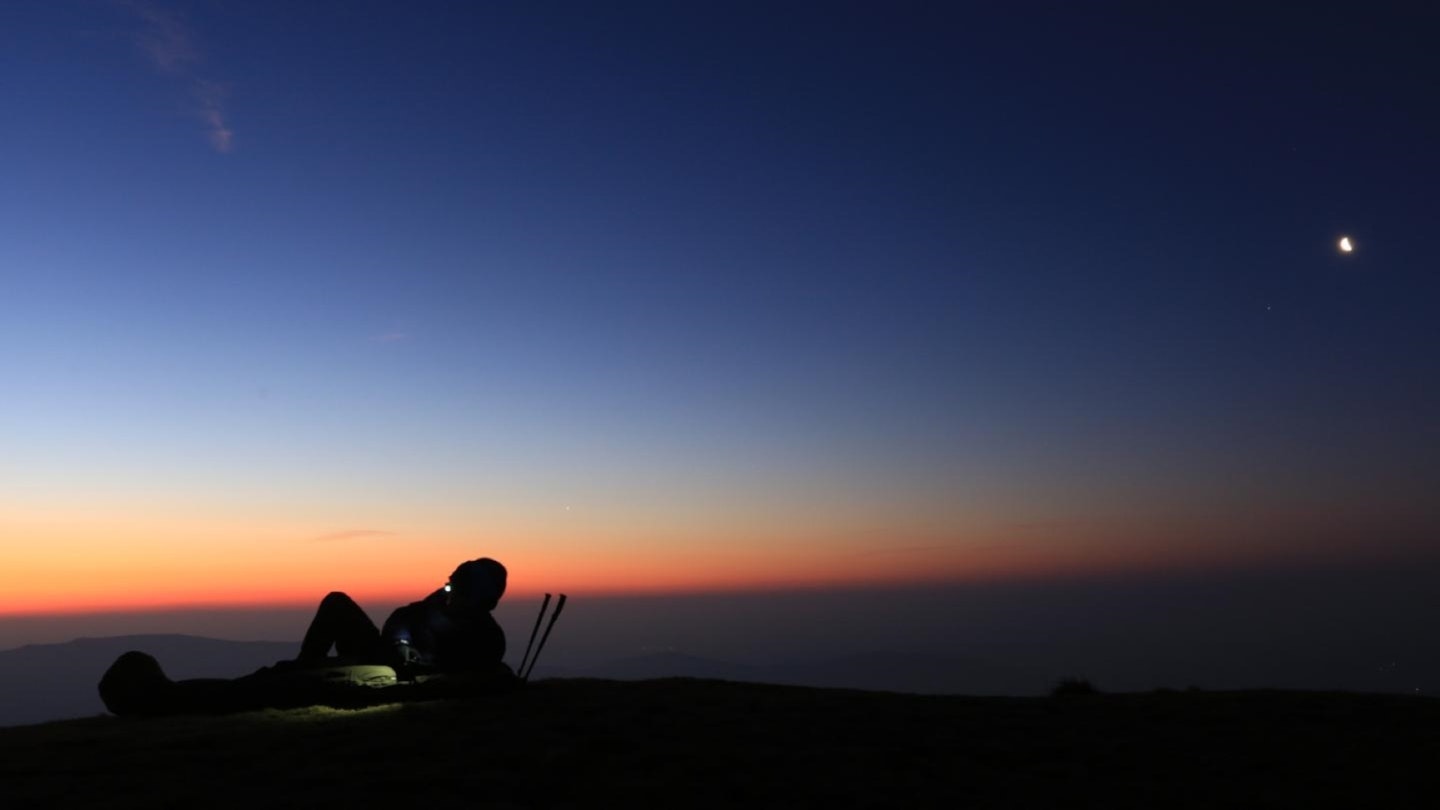
Then I’m falling. My arms and legs flailing. Before me; a black star-speckled void pulls me in. The sense of depth runs cold through my veins, clogging in an icy flood against my heart. Only, I’m not looking down, I’m looking up, feeling like the night sky is below me.
Wrapped in my bivvy, I’ve dozed off with my eyes open, waking slowly to this surreal illusion. My God, there are lots of stars. In fact, now my eyes are tuned in and night vision fully developed, the sky looks more light than dark. It heaves with a beach of stars, resulting in a light background with a few black dots.
Concentrating harder than ever on what’s before me, I refocus. Lucid, I blink, and yes, they’re still there. The whole scene is as I first saw it. Knowing full well the slightest bit of light pollution will wreck my vision, I stare, treasuring the moment. But the harder I stare, the faster I fall, this time into a longer sleep.
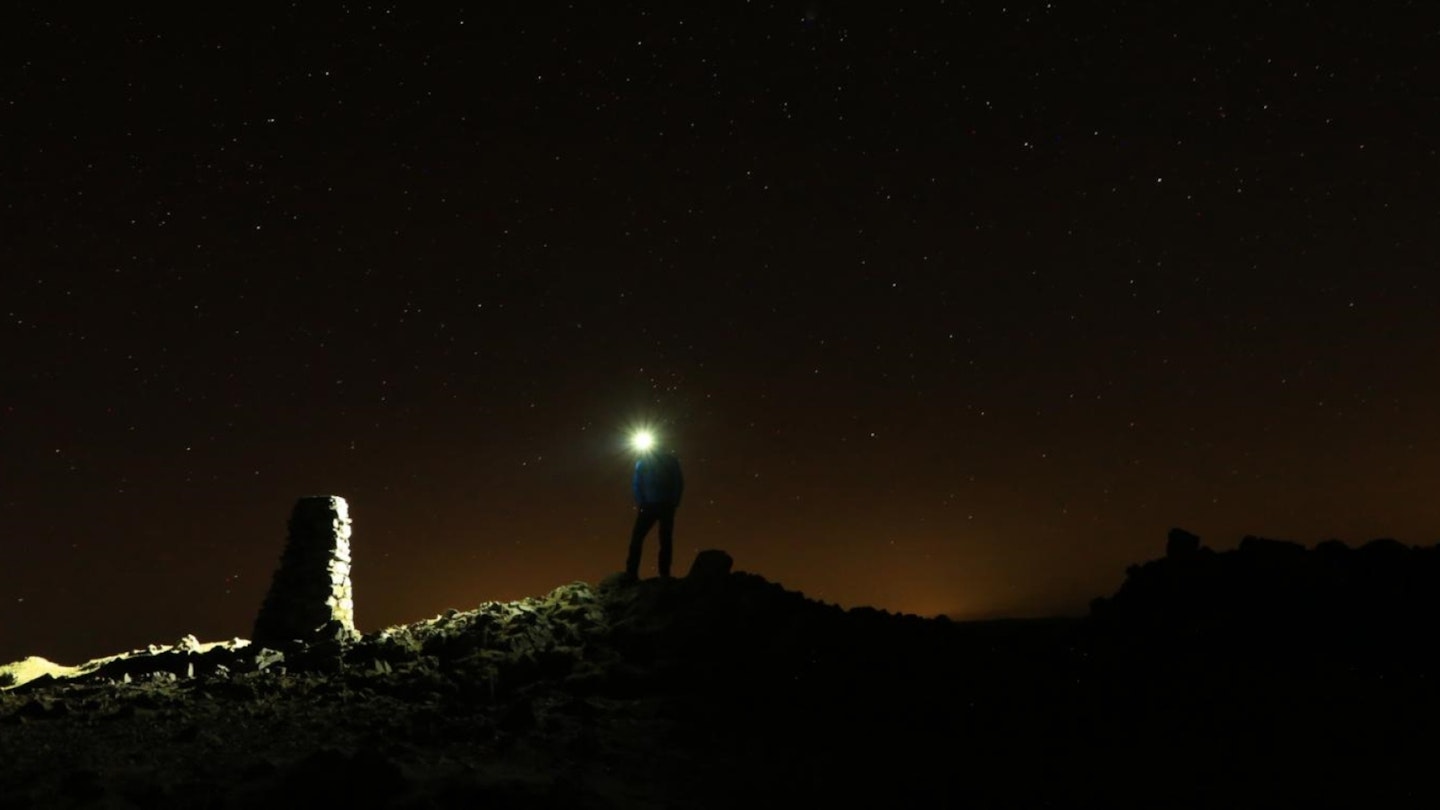
Bivvy nights are long. Sleep, when it comes, arrives in droplets. Individually, not enough to sate your tiredness, but collected over six or seven hours, just enough to survive on. The hours are marked with skyward glimpses, framed by the opening of the bivvy.
The moon – the only feature that tracks the progress of the night in my half-asleep, half-awake state – plays hide and seek with my subconscious. The trig pillar 30 metres away repeatedly catches my eye. Every time I see it, my heart misses a beat as I think I’m being watched.
Foxes are never far from my sleep-addled imagination. The thought of opening my eyes to be confronted by that sleek muzzle half-scares, half-excites me. It’s only really the elements that are worth being wary of, though. And they’re my friends tonight.
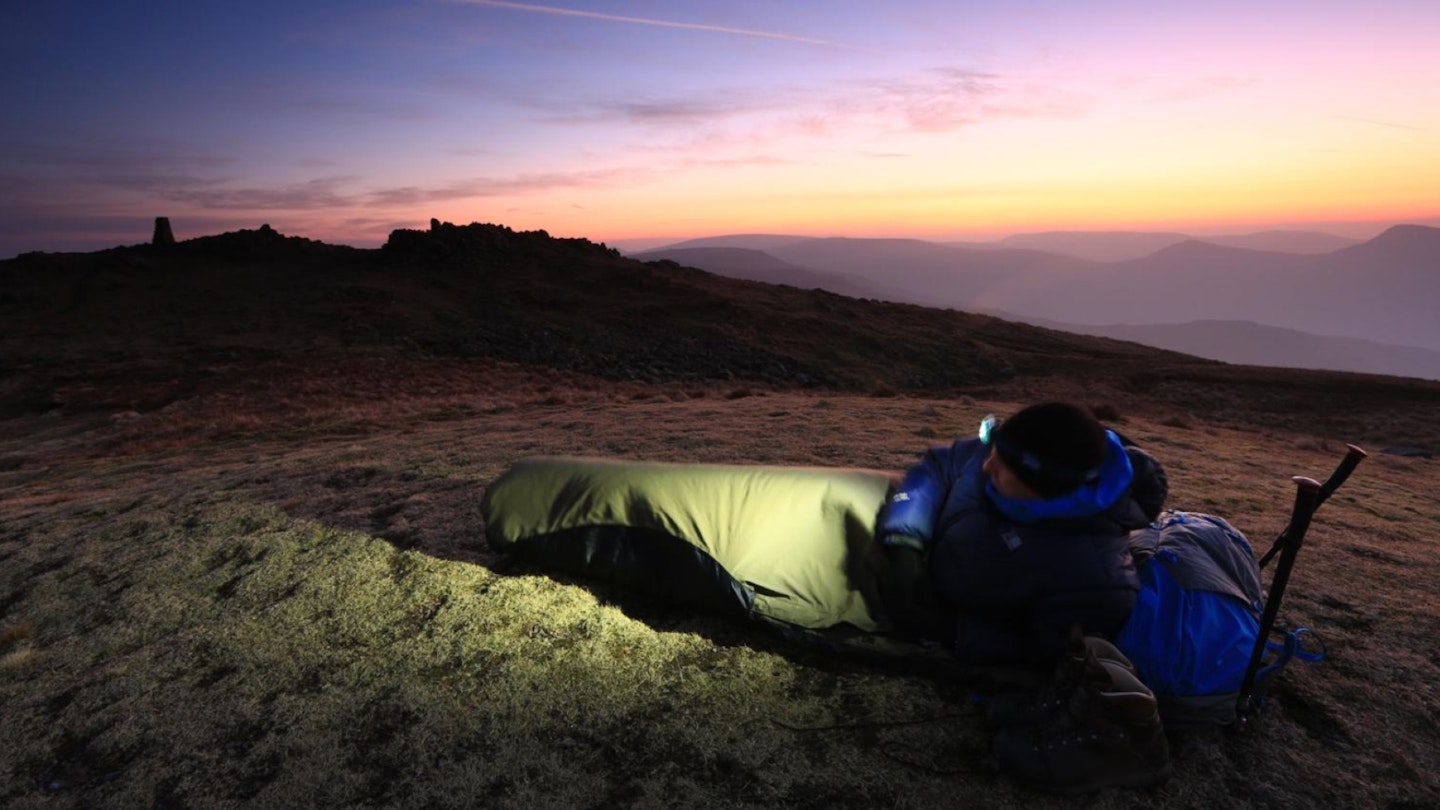
I was up a good hour before sunrise, repositioning my bivvy to see the sunrise – something that would take a great deal of planning and time with a tent. Moving the bivvy took about one and a half minutes, and colour slowly flooded back into the world.
I was toasty warm, with a grandstand view. Two people made it to the summit for sunrise, filled their boots with photos, then scarpered.
Bivvy nights are long. Sleep, when it comes, arrives in droplets.
Two minutes later, another couple arrived, 10 minutes too late for ‘the moment’. They reached the summit, looked sheepish when they saw me, then toddled off.
Meanwhile, I was part of the mountain. I felt like a rock, as all of that human activity washed over me.
Packing up is quick. The whole experience simplicity personified. When else can you own something as pure as the memory of a night under stars? These experiences are good for us.
All you need is the right attitude, a bit of mountain sense, and you’re away, living freer and wilder than the sheep below you. When I get home, I’ll utter the immortal words: “Last night I slept on a mountain.”
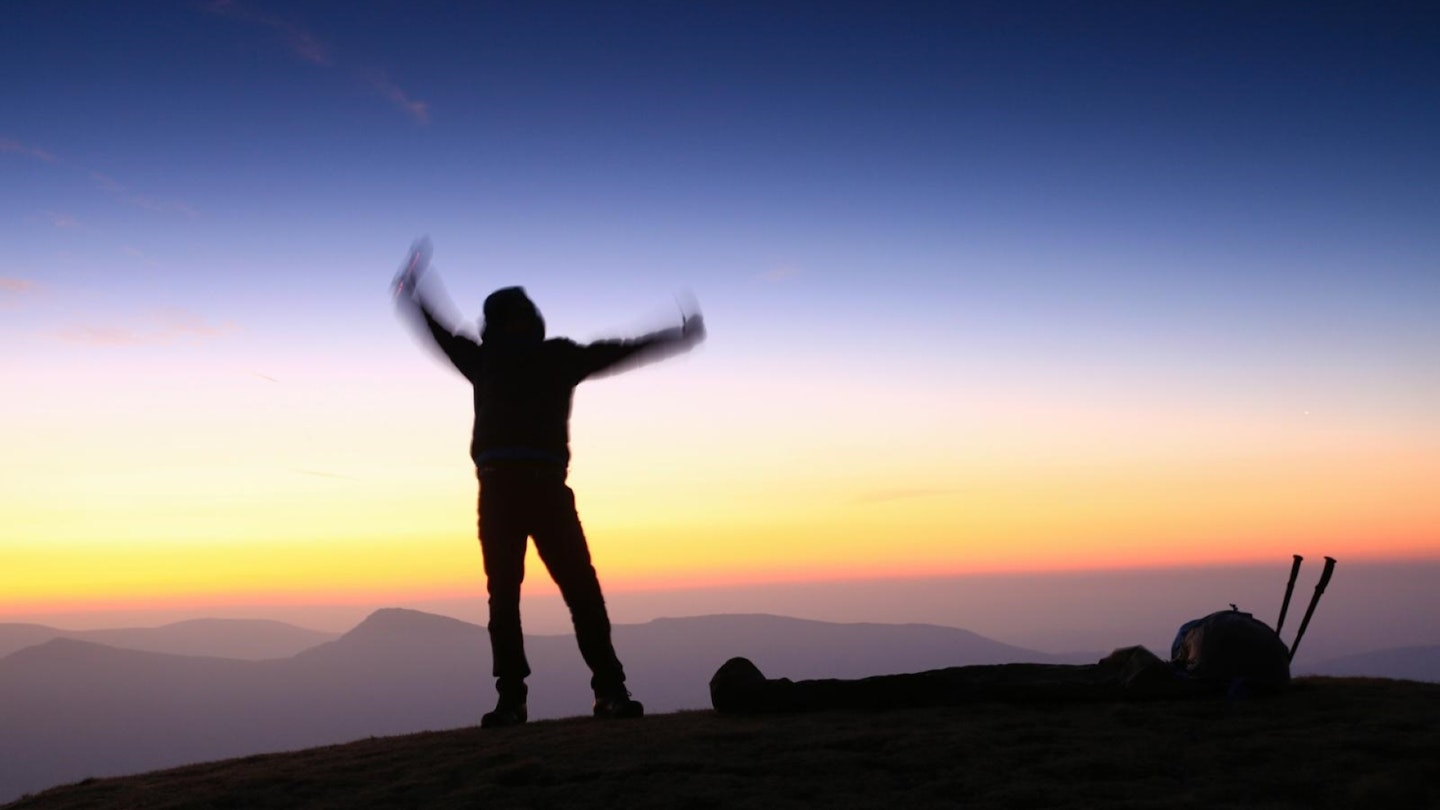
Tom's overnight bivvy kit
- Sleeping bag – lightweight and packable
- Sleeping mat – slipped inside the bivvy bag once inflated
- Bivvy bag – a waterproof cover for your sleep system
- Backpacking stove – compact and portable, great for boiling water and cooking camping meals
- 1 litre of water – if in doubt, carry even more
- Trekking poles – for walking and staking out your bivvy bag
- Headtorch - make sure it's designed for hiking, with all the relevant features
- (Plenty of) Warm layers
- Boil-in-the-bag meal
- Book
- Camera
About the author
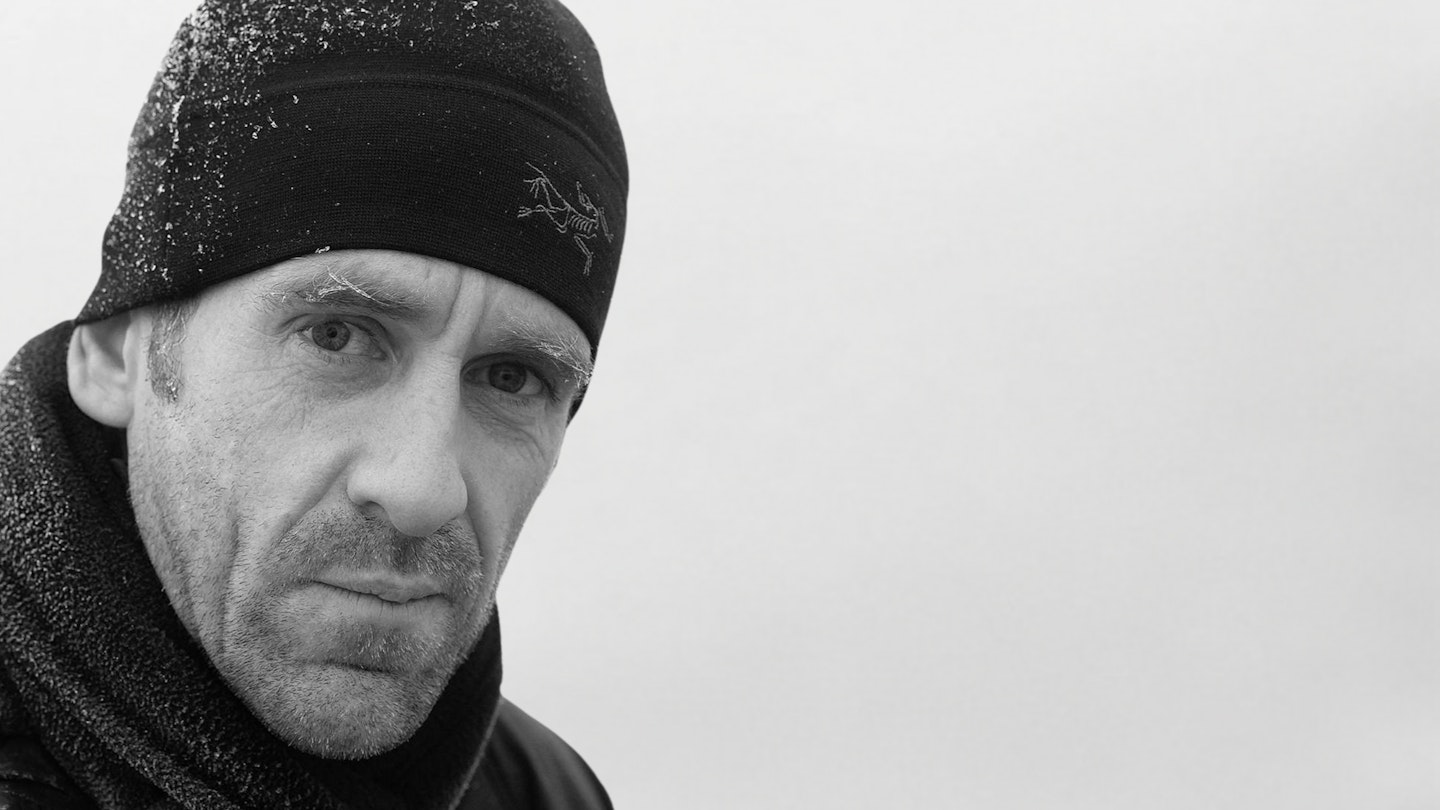
Tom Bailey has been Trail magazine’s photographer for more than 20 years and is one of the most experienced hillwalkers and wild campers in Britain. He’s climbed more mountains than most people could dream of and is an oracle of knowledge on everything from routes and gear to geology and nature.
